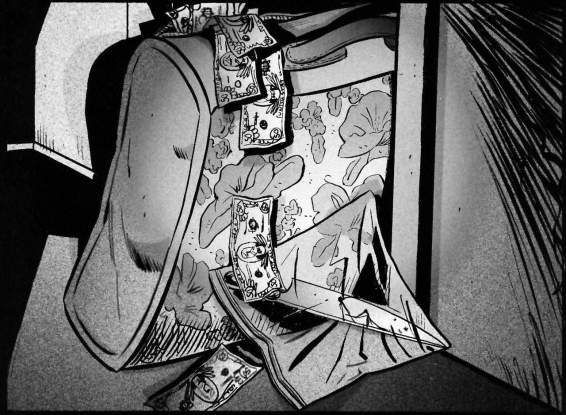
I think a lot about dumb decisions.
There’s the decisions to do things, the ones to not do anything. The ones that I still make as a grown adult, and the ones I made as a younger person. Who doesn’t look back and think about everything, especially when they hit their mid-thirties and wonder how they got here when they assumed life would have been so weirdly but undeterminably different somehow by now?
Not that life has been bad, by any stretch of the imagination. But between childhood and now I made some stupid decisions that forever altered the course of my life in negative ways, ways that can’t really be “fixed” per se in how I and other people were permanently affected by them. I impulsively broke off years-long friendships to get engaged and move to the Midwest with no work waiting for me and nowhere near the emotional maturity to help maintain a (in hindsight, obviously) straining-to-break relationship. I lost a lot during those years in the Rust belt and in the dumb scramble to get back to New York two years later, and the decisions that I made in that story affected not just me but also a bunch of other people. I can’t really say how they’ve been affected, because some won’t really expand on it, while others just won’t talk to me anymore.
I wonder sometimes what happened to them, and how they were affected by the things we said and did.
So…
There’s this adage about how fiction is really only two stories, both of which are arguably two sides of the same coin; A stranger comes to town, or a hero goes on a journey. Each of those two involve a choice, a conscious decision to go somewhere new, or do something when confronted with someone new, right? So, once that decision is made, the story moves forward, with characters acting, things happening as a result of those decisions and actions, and so on, and so on, and so on. It’s a spiral, a domino effect leading into other domino effects. Basic storytelling mechanics, really.
What can make excellent fiction stand out is when the flow of action-to-consequence-to-action factors in the fact that in real life, that the consequences don’t ever really make sense. It’s what makes the decisions that start these narratives dumb. We never think about what’s going on beyond one or two steps, the steps that only directly impact or affect us. Crime fiction is an excellent example of this, because so many of those stories are all about the unintended consequences of dumb decisions around either A) strangers or B) going somewhere strange.
I recently finished Silverfish, a graphic novel by crime/noir cartoonist David Lapham. Lapham is probably (at least in my circles) best known as the creator of STRAY BULLETS, a crime comic that captures tragic noir stories through the late 1970s, 80s, and 90s. Silverfish arguably is a spiritual cousin to STRAY BULLETS, disconnected through only the thinnest of storytelling twists really. Silverfish is a crime story where bored teenagers do what they do best..make a bad decision without thinking about the consequences outside of themselves. It boils over into a desperate night of standoffs, blood, and a crazy unfulfilled but scary glimpse into the lives of people intersecting the wrong way.
A group of teenagers decide to jokingly push the limits of “investigating” someone’s stepmom’s past by rooting through her things and trying to reach out to names in her address book. It’s petty, it’s completely not-thought through, and in doing so it unleashes mania and a lunatic with blood on his hands and (he thinks) a head full of brain-eating tiny fish). Lapham overall captures dumb decisions best, the unforeseen consequences of bad decisions being made by dumb people against bad people who react to them in ways that honestly, some of us just don’t expect. We don’t expect because we assume that since our dumb decisions are logical to us (they sure are at the time), the responses will be logical as well. We don’t expect someone to respond to a prank call with sociopathic murder, we don’t expect the step-parent we don’t like to secretly be hiding a fortune in stolen money and a decade-old murder weapon, & we don’t expect to end up running for our lives.
Claustrophobia and feeling trapped, be it in literal small space or just by circumstances (ones brought on by your or others’ shitty decisions) are a bit part of this comic, despite taking place in a couple of houses, a couple of other buildings, and even the boardwalk. It feels heavy at times, the weight of guilt from having done something wrong but not knowing just how wrong, which adds to the tension and ratchets it up intensely. That suffocating feeling we’re used to immediately popping up, a solid fuel for anxiety, is pervasive through Lapham’s work.
That lack of understanding of the wide range of possible responses we can get to a shitty dumb decision is how we get the conclusion without the resolution, the nourish atmosphere of a story’s end where no one comes out a winner. No one even really comes out of it having fully learned anything sometimes, because learning a lesson implies you were able to emerge from a situation unscathed and objective enough to understand not just what you did, but how it extended outward as a series of ripples that no one can possibly control. Silverfish ends “well” relatively speaking for a crime/noir story, but it’s still an ending mired in violence and hurt and death, and like most of Lapham’s work, we’ll never really get to see the long-term effects of it on relationships or individuals. STRAY BULLETS is rife with this as well. We just know that it’s never going to be good, because the awful things that happen because of those actions, because of those decisions, leave lasting scars, the remnants of someone paying for their actions in a way they never thought they’d have to.
I got bitter after I left the Midwest, and I didn’t stop making terrible decisions that affected others in my own story when I got back to New York. I don’t now, as much, and I’m more in control of my own narrative for the better (he writes in his apartment after work one day listening to heavy metal, with a loving partner on the couch across the room playing video games, a soft fat cat floating around somewhere), but still, fuck…the decisions in this story that led me here led to a lot of hanging ends I lost track of.
But I don’t think that matters to me, or ultimately to any good story. A brief view, a look through a window at someone scrambling desperately to deal with consequences? That’s a good story, it just depends on the moment that you chose to look through the window.
Advertisements Share:




